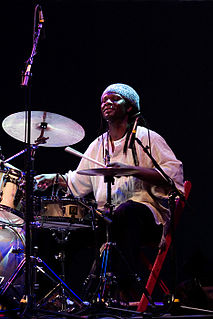A Quote by Shunryu Suzuki
In Japan we have the phrase, "Shoshin," which means "beginner's mind." Our "original mind" includes everything within itself. It is always rich and sufficient within itself. This does not mean a closed mind, but actually an empty mind and a ready mind. If your mind is empty, it is always ready for anything. It is open to everything. In the beginner's mind there are many possibilities; in the expert's mind there are few.
Related Quotes
The practice of Zen mind is beginner's mind. The innocence of the first inquiry—what am I?—is needed throughout Zen practice. The mind of the beginner is empty, free of the habits of the expert, ready to accept, to doubt, and open to all the possibilities. It is the kind of mind which can see things as they are, which step by step and in a flash can realize the original nature of everything.
In the beginner's mind there are many possibilities; in the expert's mind there are few.... In the beginner's mind there is no thought, 'I have attained something.' All self-centered thoughts limit our vast mind. When we have no thought of achievement, no thought of self, we are true beginners. We can really learn something.
In the beginner's mind there is no thought, "I have attained something." All self-centered thoughts limit our vast mind. When we have no thought of achievement, no thought of self, we are true beginners. Then we can really learn something. The beginner's mind is the mind of compassion. When our mind is compassionate, it is boundless. Dogen-zenji, the founder of our school, always emphasized how important it is to resume our boundless original mind. Then we are always true to ourselves, in sympathy with all beings, and can actually practice.
The truly still mind, with which you were born, is the mind that moves freely. Without ignoring anything, it reacts wholeheartedly to everything it encounters, to everything on which it reflects. And yet, for all that, it is the mind that is never seized by anything, but is always ready to react on the spot to whatever it encounters next. The mind that is still is the mind that never forfeits its freedom and is able to constantly keep rolling androlling and rolling.
The mind always functions in an eccentric way, the mind is always an idiot. The really intelligent person has no mind. Intelligence arises out of no-mind, idiocy out of the mind. Mind is idiotic, no-mind is wise. No-mind is wisdom, intelligence. Mind depends on knowledge, on methods, on money, on experience, on this and that. Mind always needs props, it needs supports, it cannot exist on its own. On its own, it flops.
The mind commands the body and is instantly obeyed. The mind commands itself and meets resistance. The mind commands the hand to move, and it so easy that one hardly distinguishes the order from its execution. Yet mind is mind and hand is body. The mind orders the mind to will. The recipient of the order is itself, yet it does not perform it.
The mind commands the body, and it obeys forthwith; the mind commands itself, and is resisted. The mind commands the hand to be moved, and such readiness is there that the command is scarce to be distinguished from the obedience. Yet the mind is mind, and the hand is body. The mind commands the mind to will, and yet, though it be itself, it obeyeth not. Whence this monstrous thing? and why is it?
It is the mind that tells you that the mind is there. Don't be deceived. All the endless arguments about the mind are produced by the mind itself, for its own protection, continuation and expansion. It is the blank refusal to consider the convolutions and convulsions of the mind that can take you beyond it.
































